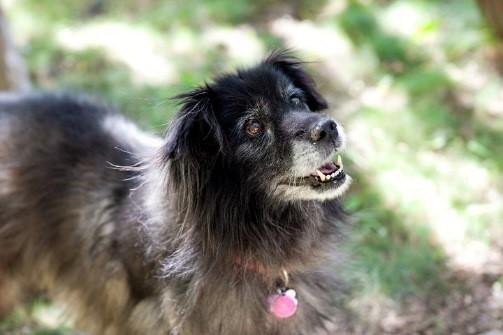By Jolee Stegemoller, DVM
As our pets age their needs change, just as ours do! When your pet comes to our office for a preventative care visit, we are interested in a few additional things than if your pet were a young pup!
Monitoring weight and appetite are important for assessing problems with metabolism, cancer, endocrine diseases, internal organ dysfunction, and issues with dental disease. It is always helpful if you can remember the brand and amount of food your dog or cat is fed daily.
Sleeping habits can also change with an older patient. A pet that may sleep more or at odd hours, could be an indication of pain or cognitive dysfunction. Cognitive dysfunction is a dementia-like disorder we recognize in dogs.
One of the most important things I like to address is the patient’s mobility. Arthritis is a really common and very painful degenerative condition of the joints. Front legs, back legs, hips, and spine are common areas for arthritis. You may feel that your pet is “slowing down” with age, but often, this can be an indication of pain. Many patients do not vocalize their discomfort but may have difficulty with standing up or trying to lay down, your cat may not want to jump up on the counter or bed, or maybe your dog gets really tired after just a short walk.
We also like to know if your pet’s behavior is changing. It is important to know if they seem as if they wander aimlessly or seems more anxious. Sometimes, pets with different diseases can start to vocalize at no apparent thing or maybe car rides have become increasingly stressful.
By addressing some of the concerns above, we can help your pet to live as comfortable and happy of a life as possible! Our goal is total pet wellness and making sure your life with your pet is great too! Please ask questions in comments below or call us if you have any questions – Alpine Animal Hospital at 963-2371.

